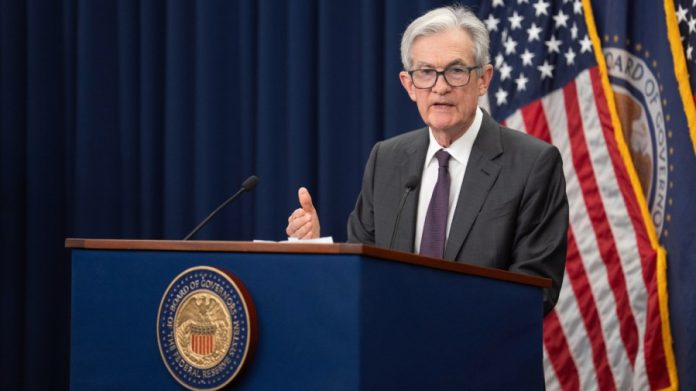
With the spotlight now focused on the Federal Reserve’s leadership, there have been some dire warnings about potential threats to the Fed’s “independence.” However, such statements have barely mentioned the need for democratic accountability and have made no reference whatsoever to the U.S. Constitution.
Every student learns that our Constitution established three branches of the government: executive, legislative and judicial. It is simply not permissible for the Fed to be a fully independent “fourth branch.”
The Constitution specifically gave Congress the duty to “regulate the value” of money, and Congress has delegated that responsibility to the Fed. Thus, Congress must serve as the Fed’s boss.
Under current law, however, the Fed has such broad powers that it effectively functions like an independent monarchy instead of an agency of Congress. Indeed, the Fed’s powers exceed those of every other federal agency and every other major central bank.
- Budget: Unlike other agencies, the Fed has sole authority to determine the budget for its buildings and operations. By contrast, other major central banks submit their budgets for approval by an oversight body (for example, Canada, Norway, Sweden, Switzerland and the United Kingdom).
- Asset purchases: Over the past two decades, the Fed’s balance sheet has expanded by 10 times. The Fed’s purchases in 2020-21 incurred huge interest rate risks that are now costing taxpayers more than $1 trillion.
- Debt issuance: The Fed is uniquely authorized to borrow funds from the public to finance its operating losses. The Constitution assigns Congress with the duty to oversee the nation’s debt, but the Fed’s obligations are exempted from the congressional debt ceiling.
- Salaries: The Fed determines the compensation of its staff, many of whom are paid more than the president. In fact, the salaries of the top Fed staff are roughly twice that of their counterparts at other federal departments and agencies.
- Buildings: The Fed is now completing a $3.1 billion upgrade of three buildings used by about 2,400 Fed staff, and its headquarters will soon be one of the most expensive structures in the world. By contrast, the European Central Bank is now in the process of downsizing its headquarters in Frankfurt to two buildings instead of three.
- External Reviews: The Government Accountability Office conducts comprehensive reviews of every other federal agency but can only conduct limited reviews of specific Fed operations. Moreover, The Fed’s inspector general is an employee appointed by the Fed chair who works “under the authority, direction, and control” of the Fed chair on all policy-related matters.. In contrast, the Bank of England’s performance is reviewed by an Independent Evaluation Office and by the U.K. National Audit Office, while the European Central Bank’s performance is reviewed by the European Court of Auditors.
The Fed’s internal governance has shifted markedly away from its intended design as a commission composed of an array of individually accountable experts.
For nearly a century, the head of each regional Federal Reserve Bank was selected by its board of directors, with “light touch” oversight from the Federal Reserve Board in Washington D.C.
Since 2015, however, the Fed Board has been directly involved in all stages of selecting new Fed Bank presidents, who are now viewed as “subordinates” of the Fed Board.
The Fed Board has seven members with staggered terms — a design in which the Fed chair would be “first among equals,” similar to the role of the chief justice of the Supreme Court. In practice, however, the Fed chair has a dominant role as its active executive officer, whereas the other board members have non-executive roles.
Thus, the staff are solely accountable to the Fed chair, who determines what information will be shared with the rest of the Fed Board. For example, in 2023 the Fed published a key report about the Silicon Valley Bank failure even though that report had never been shown to several Fed Board members prior to its publication.
Of course, the Fed is not literally a monarchy, but its characteristics are eerily similar to those of a sovereign entity. And the Fed’s lack of transparency and accountability are eroding its credibility and undermining its effectiveness in carrying out its mission.
Thus, Congress should now take immediate steps to fulfill its constitutional duty to serve as the Fed’s boss.
The Fed’s budget should be incorporated into the federal budget. The Fed should have a presidentially-appointed inspector general just like at every other major federal agency, and GAO should be authorized to conduct comprehensive reviews of the Fed’s programs and operations.
And a blue-ribbon commission should examine the Fed’s institutional structure and present a specific set of recommendations to be considered by Congress.
Andrew T. Levin is a professor of economics at Dartmouth College.

